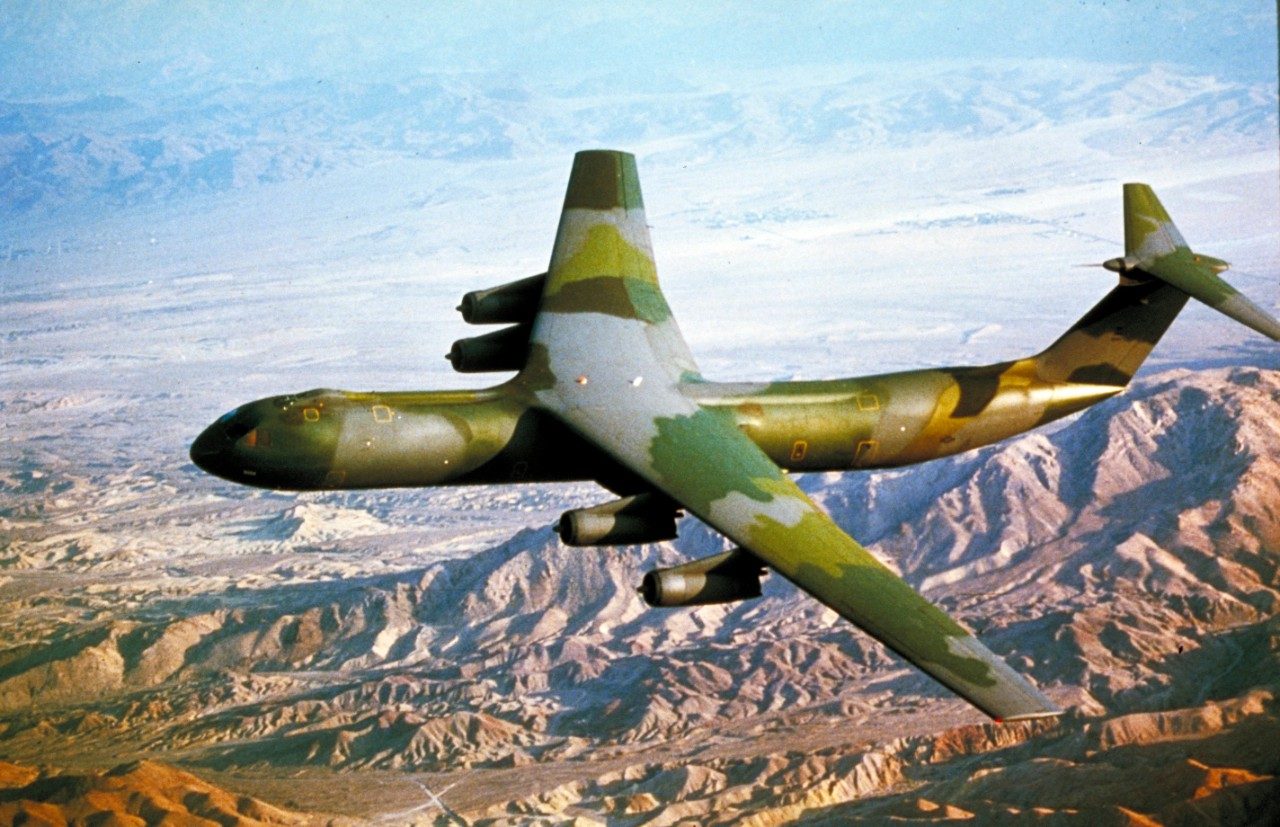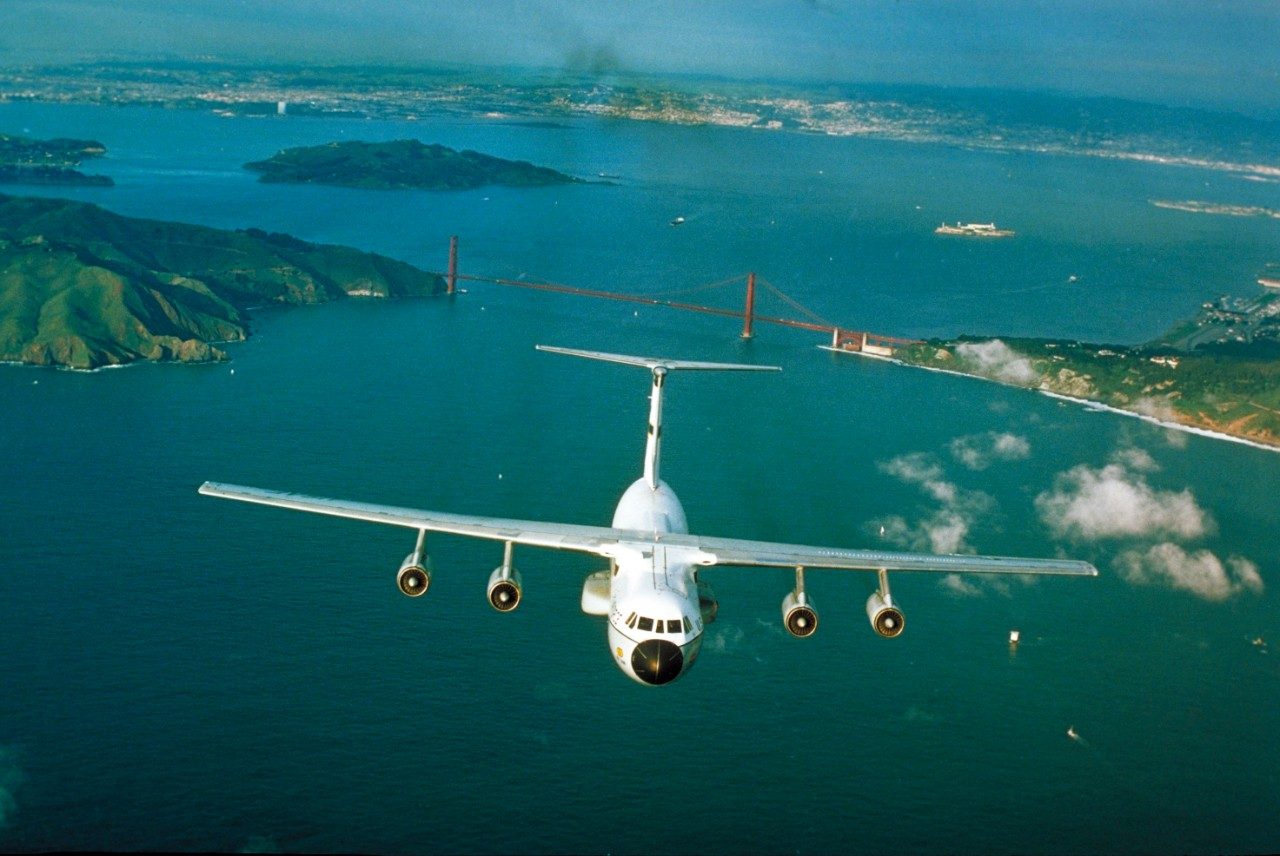Promoting world peace and security one flight at a time

Extending the military’s reach
Responding to President Kennedy’s order to develop an all-jet military transport troop and cargo carrier, Lockheed produced the StarLifter on time and under budget using the exclusive designs of its Marietta-based engineers. From 1965 to 2006, it served as the mainstay of the U.S. military airlift, participating in every operation from Vietnam to Iraqi Freedom. The aircraft’s speed proved invaluable during Vietnam by cutting roundtrip flight time between California and Saigon from 95 hours to 34, while its 93-foot cargo bay made it easy to offload almost 70,000 pounds of freight per hour.
Equally impressive when transporting passengers, the StarLifter came to be known as the “Hanoi Taxi” in 1973 after repatriating nearly 600 American Prisoners of War held in North Vietnam. The planes also played important roles in rescuing American personnel and Vietnamese refugees during the 1975 exodus of Saigon, evacuating 78 wounded in the 1983 bombing of the U.S. Marine barracks in Beirut, and carrying 39 hostages to freedom after the 1985 hijacking of a TWA airliner in Egypt.
The StarLifter aided smaller military engagements such as Granada and Panama by airdropping troops and moving heavy Army equipment to and from the battlefields. And a convoy of modified C-141Bs successfully supported larger missions in the Middle East like Operation Desert Shield, operating around the clock and landing in Saudi Arabia at an astounding rate of one every seven minutes.

Saving Lives and Advancing Science

Sources and Additional Reading
- Boyne, Walter. Beyond the Horizons: The Lockheed Story. New York: St. Martin’s Griffin, 1999.
- “C-141B StarLifter,” http://www.fas.org/programs/ssp/man/uswpns/air/cargo/c141b.html, accessed 11 May 2012.
- Fredriksen, John C. The United States Air Force: A Chronology. Santa Barbara, Calf.: ABC-CLIO, 2011.
- “USAF Retires Last Lockheed Martin C-141 StarLifter; World's First Jet-Powered Airlifter Completes 43-Year Career,” http://www.prnewswire.com/news-releases/usaf-retires-last-lockheed-martin-c-141-starlifter-worlds-first-jet-powered-airlifter-completes-43-year-career-56156262.html, accessed 11 May 2012.




